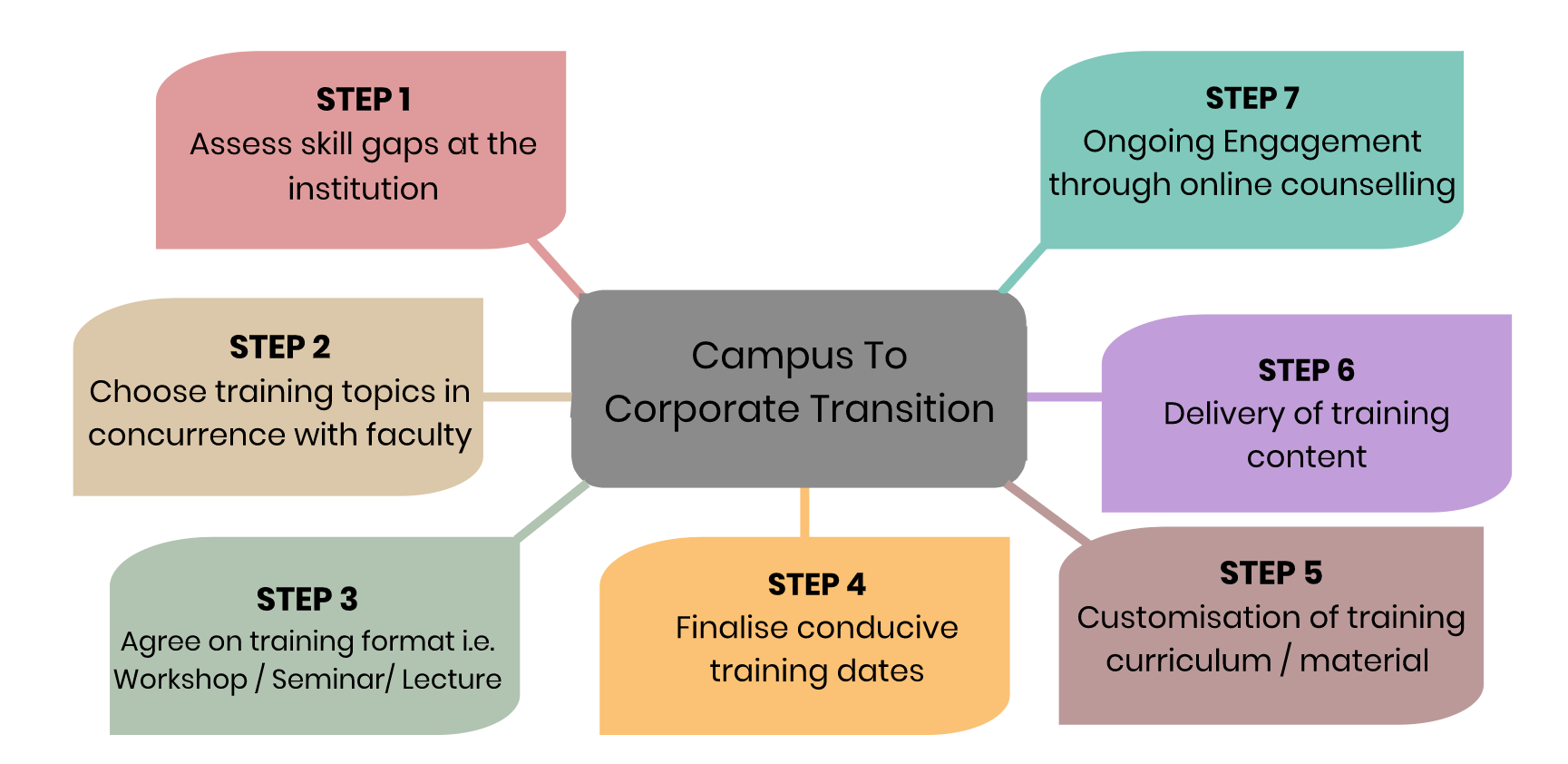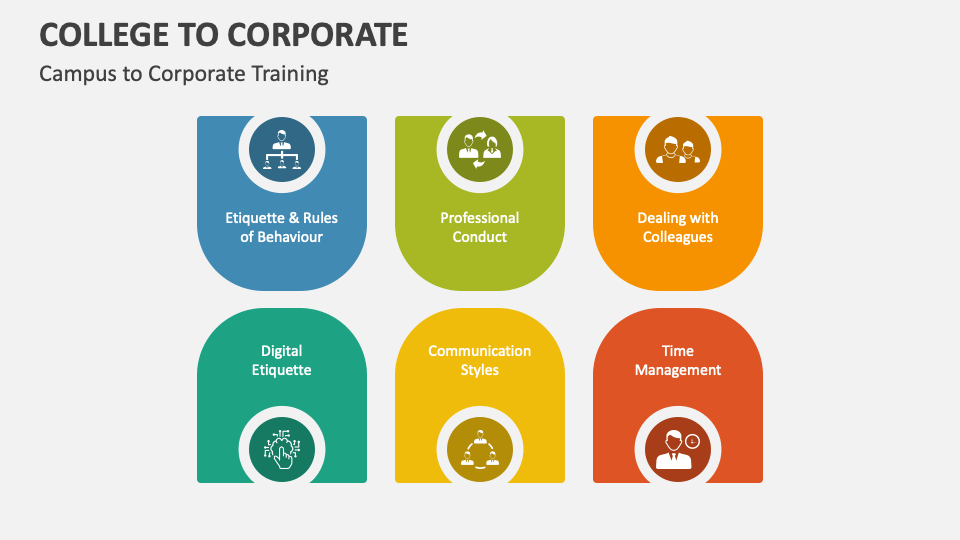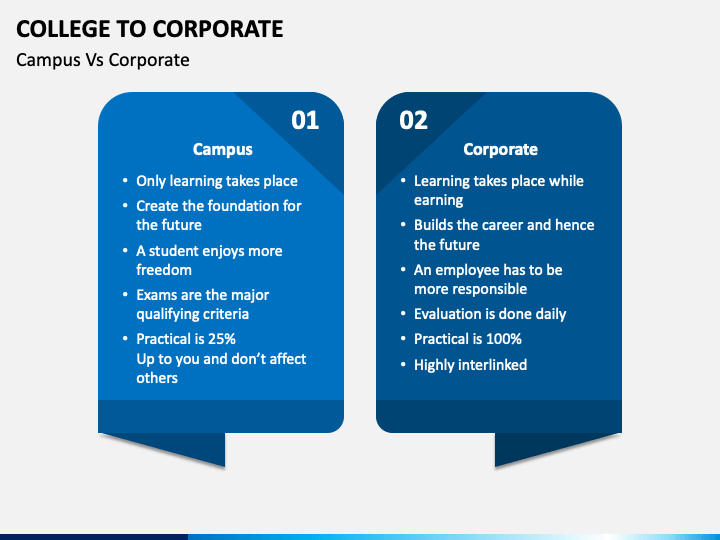Mastering the Transition for Career Success: From Campus to Corporate
Table of Contents

College life is one of the most vibrant and unforgettable phases of our lives. Who hasn’t daydreamed about holding on to those carefree days just a little longer and wishing they could go back to college for just one more year of fun and freedom? We know what we do when we think, “If only we could enroll in a degree program again!” But you know what they say, “Every end is a new beginning.”
Leaving the comforts of campus life and entering the working world—that is a big step, a step that offers many opportunities to grow, learn, and develop another set of skills that could lead you to a successful career. As you prepare to separate from the familiar home of college life, it is relevant to reckon that anxiety and pressure will arise amidst the excitement of graduating. When you make that transition from lounging in your friend’s dorm or apartment earlier in the week to learning how to be an adult and work in a workplace setting, it’s intimidating but also an exciting journey.
To succeed in today’s competitive environment, a degree is really not sufficient anymore. Graduates must be ready for the industry, with the necessary skills to stand out. With a positive attitude and an excellent plan of action, this journey can become not just manageable but also very satisfying! Then, how do we accomplish this important transition from campus to corporate? Let’s dive in!

*crossovertraining.in
Challenges and Obstacles Graduates Face
1. High Competition
High competition is one of the first challenges graduates encounter. In an environment where almost all candidates have the same qualifications, standing out in a crowd is not easy. The pressure to stand out can feel overwhelming at times. Many graduates feel discouraged after applying to many jobs and hearing little or no feedback about their application. Knowing how to market oneself is a necessary element of the process when you compete with others.
2. Shift in Lifestyle
The transition from the carefree campus to a corporate setting is not just about job responsibilities; it’s also about lifestyle changes. College life often allows for flexibility and spontaneity, while corporate life demands structure and discipline. Graduates must adjust to working long hours, adhering to strict deadlines, and managing a more rigid schedule. This can be a significant shock to the system.
3. Practical Skills Gap
Academic knowledge is essential, but as a rule, it does not adequately prepare students for the business world realities. Going from college to the corporate world, graduates may struggle with skills that are often essential for success in the workplace and are considered basic to their post-graduation employment, including problem-solving, critical thinking, and communication skills.
4. Corporate Culture Adjustment
Every organization has its individual culture that can be significantly different from the college world. Recognizing the culture and adapting is vital to being a successful employee. Graduates will need to understand the honorable rules of the workplace: how to dress, talk to their peers, and work with their team. Failure to acclimate can lead to feelings of loneliness and depression.
5. Stress Management
Entering the corporate world from campus can be stressful. Many graduates new to the workforce experience the pressures of job demands, increasing work hours, and balancing authenticity in personal and professional life. Learning to manage stress is a deciding factor as they adjust to entering the workforce. Managing stress is important to maintaining mental health and job outcomes.
6. Building Professional Relationships
Networking plays an important role in career development, but many recent alumni feel unsure of how to cultivate professional relationships. Creating contacts with co-workers, mentors, and professionals in the field could lead to opportunities to advance your practice. The call to network, however, can be daunting, particularly for recent graduates who may be naturally introverted.
7. Navigating Technological Changes
In the modern digital age, technology has become a core part of the corporate world, especially for today’s career aspirants. As you can imagine, this sector of new tools and technology is constantly changing; therefore, as a graduate, it may seem clumsy to keep up with changes, but it is essential to remain competitive. To succeed, it is important to learn and adapt to new technology and skill sets.
Tips for a Successful Transition
Now that we’ve explored the challenges graduates face, let’s discuss practical steps to master the transition from campus to corporate life.

*collidu.com
1. Lay the Academic Foundation
Your journey to career success begins within the walls of your academic institution. While doing well in college is important, it’s also important to look beyond book knowledge. Getting involved in extracurricular activities, internships, and volunteering helps you develop interpersonal and leadership skills. It’s just as important to prepare you for real-life challenges as it is to put on your resume.
2. Create an Impactful Resume and Personal Brand
Your resume is typically your first impression in the corporate world. Use it as an opportunity to show more than just your academic accomplishments, but also your skills and experience in real life. You should also create a strong personal brand online (think LinkedIn) that accurately reflects your qualifications, your skills, and your career goals.
3. Master the Art of Networking
Networking is crucial for a successful corporate career. Attend industry events, career fairs, and networking mixers to connect with professionals in your field. Remember, networking is not just about what you can gain; it’s also about how you can contribute to others’ success. Building genuine relationships can provide invaluable insights and potential job opportunities.
4. Develop Adaptability and Resilience
The campus to the corporate world is an ever-changing environment, and change is constant. Being able to develop adaptability and resilience in the face of challenges and setbacks is an important quality that will serve you well. Embrace change as a learning opportunity, and do not fear failure; it is often the best teacher.
5. Understand Corporate Culture
Make an effort to explore the organization’s culture you are joining. This includes not only the formal policies but also the unwritten rules that shape how things get done and how people interact in the workplace. Alignment with corporate culture can minimize struggling to fit in, allow you to integrate more easily, and lead to greater job satisfaction.
6. Smooth, Effective Communication Skills
Effective communication is key in any professional setting. Focus on improving both verbal and non-verbal communication skills. Learn to articulate your thoughts clearly and practice active listening with colleagues. Strong communication skills can enhance your professional relationships and promote collaboration.
7. Master Time Management and Prioritization
The demands of the corporate environment are fast-paced and compel efficiency and productivity. Sharpen your time management skills to handle many tasks while remaining on deadline. Rank your workload according to urgency and importance, and know when to assign tasks to others. Good time management increases your work productivity and provides a positive impression of your work effort.
8. Continuous Learning through Online Certifications
Your formal education is just the beginning of your lifelong learning journey. In today’s fast-paced world, staying updated on industry trends is crucial. Online certifications offer a fantastic way to enhance your knowledge and skills, allowing you to adapt to the evolving demands of your field.
Invest in continuous learning opportunities by exploring platforms that provide courses relevant to your career. Whether it’s mastering new software, learning about emerging technologies, or improving soft skills, these certifications can significantly boost your professional profile. You can check out various courses available at Jaro Education.
Being open to acquiring new skills not only keeps you competitive but also positions you as a valuable asset to your organization. Employers appreciate individuals who take the initiative to learn and grow, as it demonstrates commitment and adaptability.

*sketchbubble.com
How Jaro Education Can Help You With Campus to Corporate Transformation
Jaro Education is India’s most trusted online higher education company, dedicated to guiding graduates as they transition from college to the professional world. Founded in 2009, Jaro has transformed the careers of over 350,000 professionals through its innovative educational programs. Here’s how Jaro Education can support your career growth:
- Academic Guidance: Jaro provides personalized academic support to help you navigate your learning journey effectively. Our experienced faculty offers insights and mentorship tailored to your career goals.
- Career Counseling: With a strong focus on career development, Jaro offers counseling services that help you identify your strengths and interests, ensuring you choose the right path for your professional future.
- Diverse Courses: Jaro offers over 150 management, technology, and techno-functional programs in collaboration with prestigious institutions like MIT, IIMs, and XLRI. These programs are designed to equip you with the necessary skills to excel in today’s competitive job market.
- Recognition and Trust: Jaro has been awarded the Leading EdTech Company of the Year and recognized as a pioneer in online education, ensuring you receive quality education from a reputable source.
Conclusion
Moving from campus to corporate life is a complex process, filled with both challenges and opportunities. By being aware of the transitions graduates make and by implementing helpful strategies, you can strengthen your confidence as you experience this transitional process.
Every challenge is an opportunity for growth. Accept the journey, be flexible, and be committed to lifelong learning, and you will accomplish what is necessary to begin your career on the right footing. With appropriate campus-to-corporate training, you can use this transition to begin a successful and fulfilling career. Remember to take a breath and step into the corporate world with confidence. You can do this!
Frequently Asked Questions
What do you understand about the campus-to-corporate transition?
Transitioning from campus to corporate takes you from an academic atmosphere to the corporate environment. It includes establishing a sound academic foundation, learning to network, growing communication skills, and embracing lifelong learning. The 8-step training is a guide to help you move successfully through this transition and prepare for the challenges of corporate life.
Which online course certifications are valuable?
There are various online certifications that are highly reputable around the world, especially in technical areas such as: data science, artificial intelligence and cybersecurity. Other areas, which are also valuable, are: digital marketing, cloud computing and project management.
How can I enroll in online certification courses?
If you’re interested in improving your leadership or management skills, I recommend visiting the Jaro Education website, which offers more than 150 of these courses to help you with your career. So don’t hesitate, sign up today and you can begin your training and ongoing education!
What benefits does Jaro Education provide?
Jaro Education provides individualized academic mentoring, professional development, and a variety of online courses associated with reputable institutions. To present both practical skills and workforce orientation in our courses, we provide programs to prepare you for the corporate sector to ensure you are competent in your field of work.
















